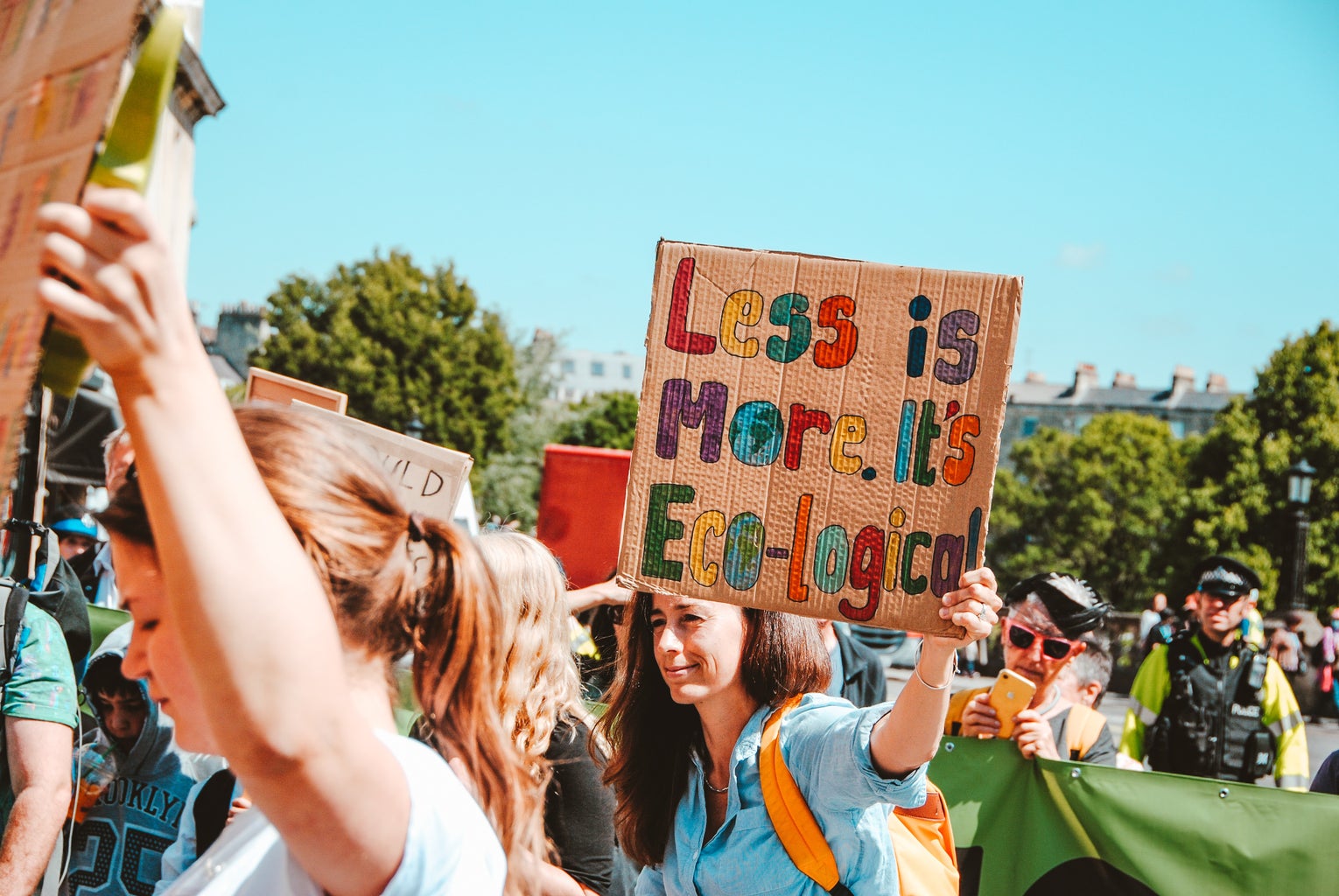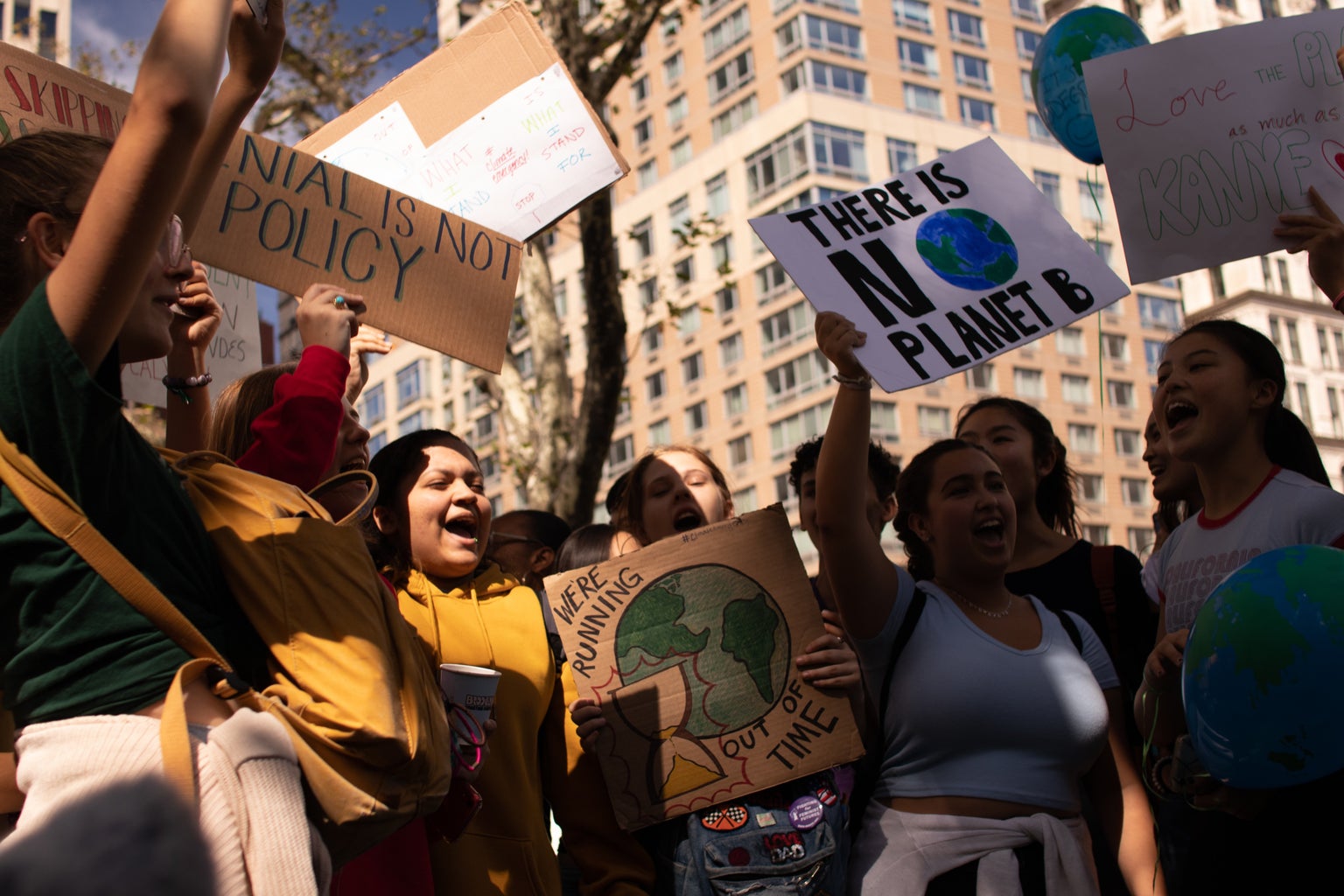It is well-known that our Earth is in crisis. The most recent report from the Intergovernmental Panel on Climate Change (IPCC) warns that if greenhouse gas emissions are not reduced, global warming is likely to exceed the 1.5° Celsius target between 2030 and 2052, which would have severe consequences around the world. Already, an increase of 1.5° Celsius above pre-industrial levels is expected to increase the occurrence of many of the damaging effects of climate change that are already occurring, including increased droughts, wildfires, stronger hurricanes, floods, and sea-level rise. Other factors, such as pollution and deforestation, also contribute to these environmental outcomes and others like loss of biodiversity and safe drinking water. However, many argue about potential blame and solutions to our existing environmental disasters.
Ecofascim is one harmful theoretical model that incorporates white supremacy into environmentalism and often blames overpopulation for global warming, pollution, and worldwide hunger. In an article from the Journal of Perspective on Global Development and Technology, Cassidy Thomas and Elhom Gosink discuss how as more right-wing groups begin to consider the rising concerns surrounding the environmental crisis, they have begun to incorporate xenophobia, racism, and anti-immigration rhetoric into discourse. For example, supporters of population control argue that because people have caused most of the current environmental disasters, controlling the population would reduce global warming and reduce poverty. This idea suggests that if there were fewer people, there would be enough food and resources for everyone and pollution and carbon emissions would decrease. This is false. In fact, the article mentioned previously states that “Not only do population-control policies fail to accurately address the roots of ecological crises, but they continue the legacy of discounting the humanity and agency of women, particularly women of color.” Reducing the freedoms of women in countries with high populations and birth rates does not mean that wealth and resources like food will suddenly be redistributed globally. For true resource and wealth redistribution, capitalist systems of exploitation, overconsumption, and waste would need to radically change.
In addition, having a high population does not mean that a county contributes the most to global carbon emissions. India, for example, has a population that is more than four times greater than the United States. However, according to Our World in Data, the U.S. contributed 13.54% of annual carbon emissions in 2020, whereas India contributed 7.02%. While there are other countries, such as China, with high populations and carbon emissions, it is clear that a high population does not always mean a high carbon footprint. Additionally, Oxfam International reported in 2020 that the richest 10% of people contributed 52% of carbon emissions between 1990 and 2015. This is clearly an issue of overconsumption and abuse of fossil fuels by the privileged.
Centering environmental justice and intersectional environmentalism, which advocates for people and the planet, can combat ecofascism. This means understanding that low-income people are disproportionately affected by the effects of climate change and environmental hazards caused by pollution. It means actively practicing antiracism and standing against historical practices that have created environmental racism. It means advocating for and supporting indigenous groups who are fighting to protect their lands. It means fighting for women’s reproductive rights in the face of false claims about overpopulation. It means supporting scientists who speak out about the urgency of this crisis, and climate policies and movements that will help change our lifestyles and the types of energy sources we rely on.




